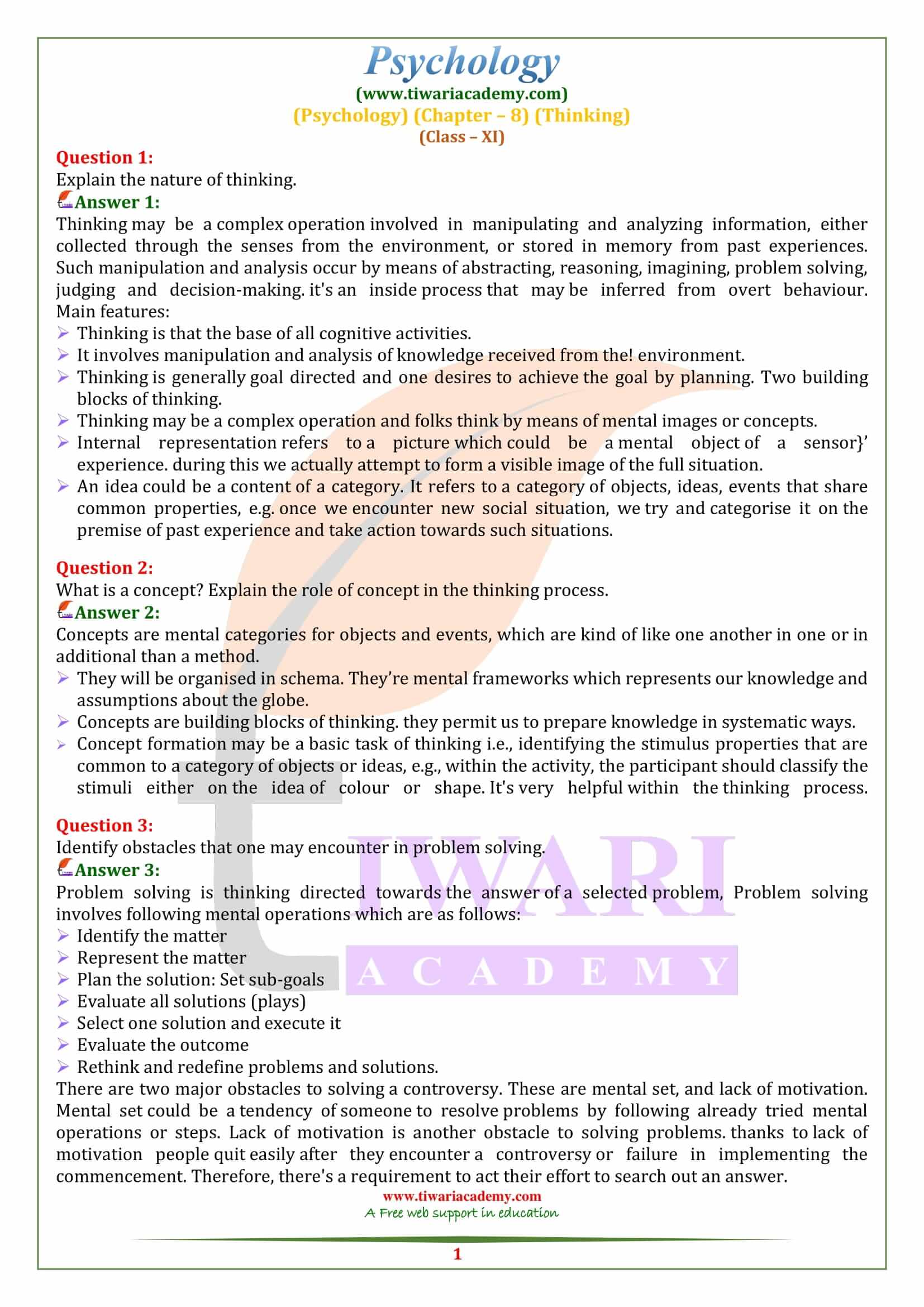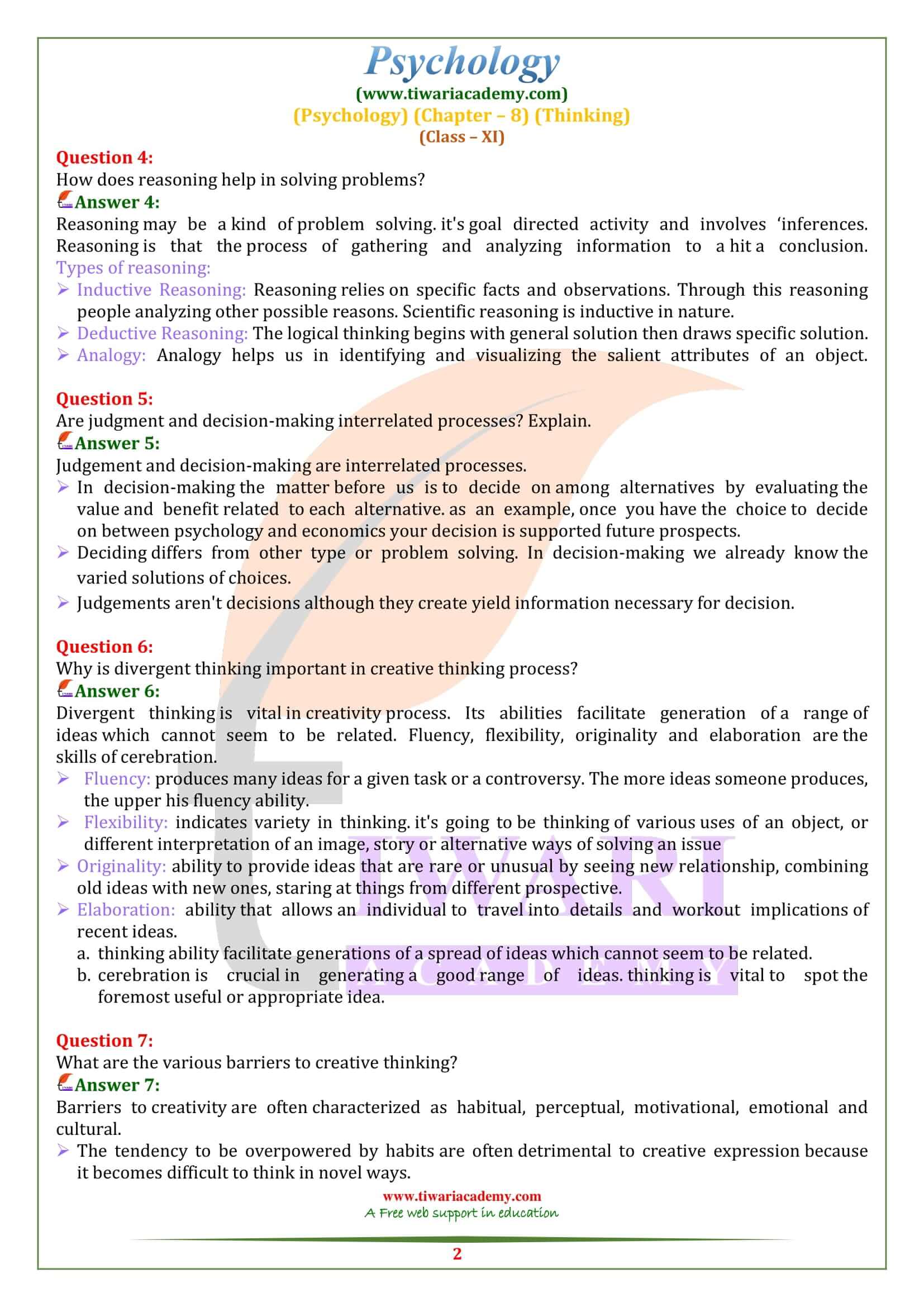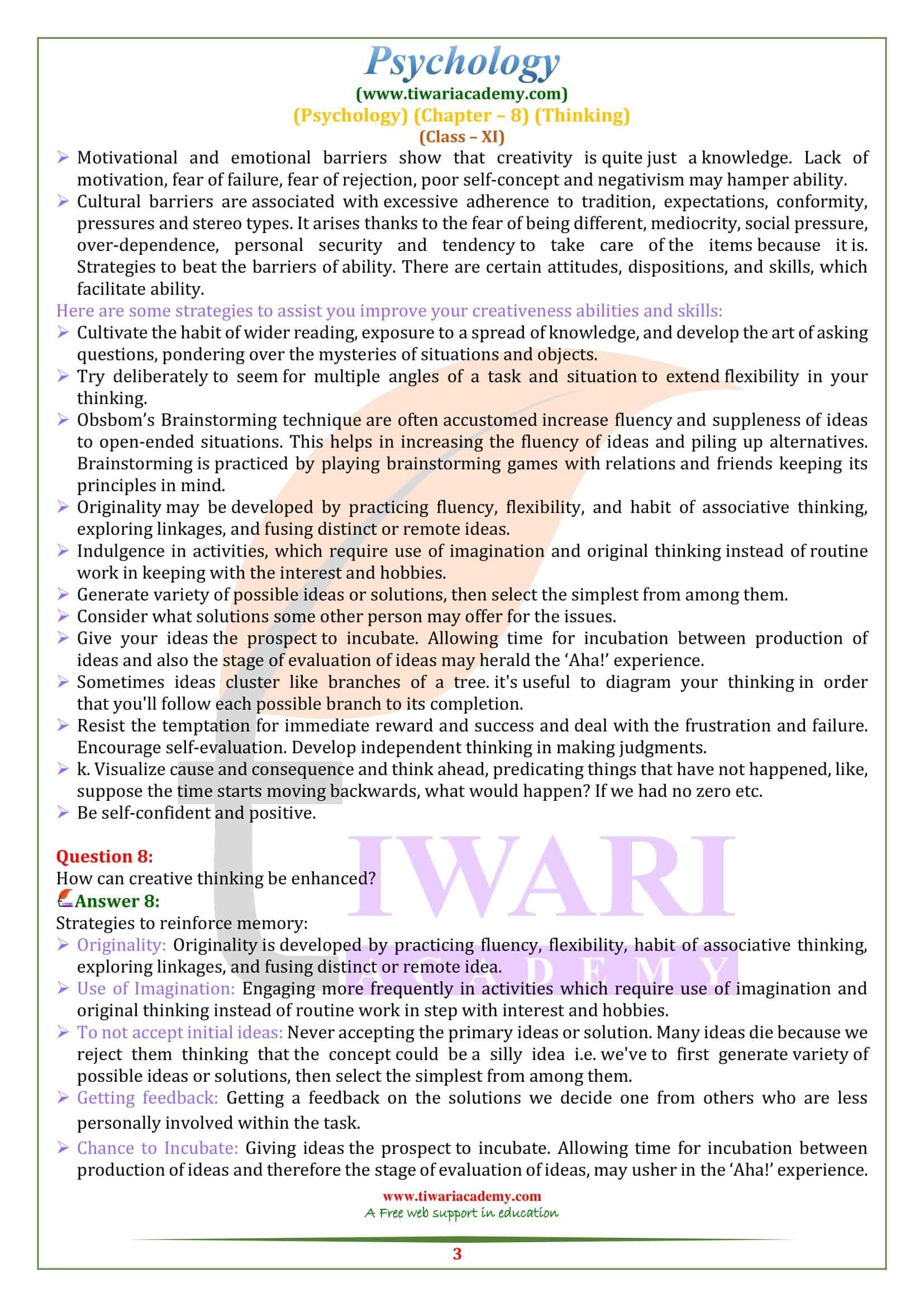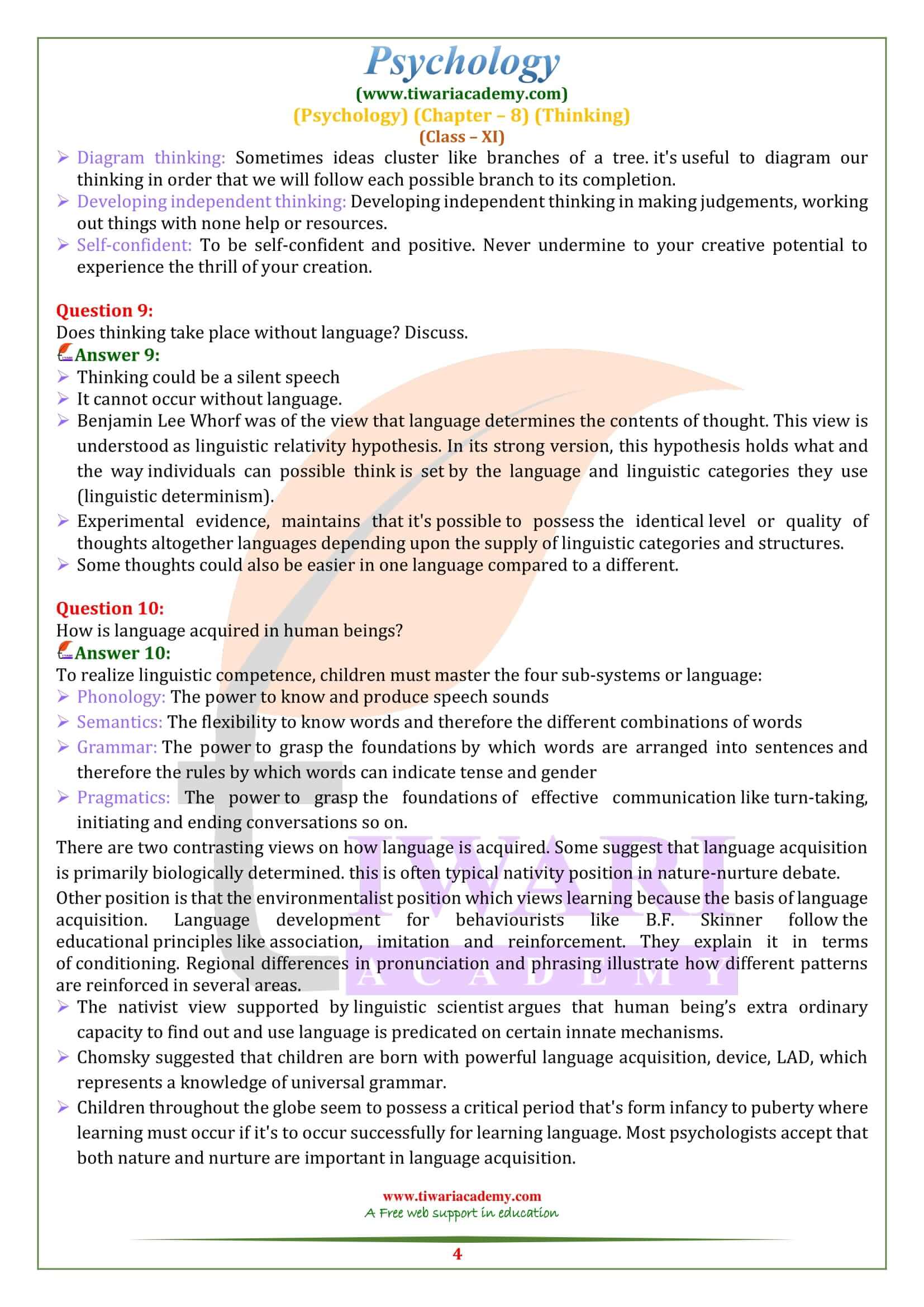NCERT Solutions for Class 11 Psychology Chapter 8 Thinking updated and modified for new academic session 2025-26. Students of CBSE and State board can take the benefits of class 11 Psychology solutions as well as extra practice questions which are important for exams.
NCERT Solutions for Class 11 Psychology Chapter 8
Class 11 Psychology Chapter 8 Thinking Quesiton Answers
Explain the nature of thinking.
Thinking may be a complex operation involved in manipulating and analyzing information, either collected through the senses from the environment, or stored in memory from past experiences.
Such manipulation and analysis occur by means of abstracting, reasoning, imagining, problem solving, judging and decision-making. it’s an inside process that may be inferred from overt behaviour.
Main features:
- Thinking is that the base of all cognitive activities.
- It involves manipulation and analysis of knowledge received from the! environment.
- Thinking is generally goal directed and one desires to achieve the goal by planning. Two building blocks of thinking.
- Thinking may be a complex operation and folks think by means of mental images or concepts.
- Internal representation refers to a picture which could be a mental object of a sensor}’ experience. during this we actually attempt to form a visible image of the full situation.
- An idea could be a content of a category. It refers to a category of objects, ideas, events that share common properties, e.g. once we encounter new social situation, we try and categorise it on the premise of past experience and take action towards such situations.
What is a concept? Explain the role of concept in the thinking process.
Concepts are mental categories for objects and events, which are kind of like one another in one or in additional than a method.
- They will be organised in schema. they’re mental frameworks which represents our knowledge and assumptions about the globe.
- Concepts are building blocks of thinking. they permit us to prepare knowledge in systematic ways.
- Concept formation may be a basic task of thinking i.e., identifying the stimulus properties that are common to a category of objects or ideas, e.g., within the activity, the participant should classify the stimuli either on the idea of colour or shape. It’s very helpful within the thinking process.
Identify obstacles that one may encounter in problem solving.
Problem solving is thinking directed towards the answer of a selected problem, Problem solving involves following mental operations which are as follows:
- Identify the matter
- Represent the matter
- Plan the solution: Set sub-goals
- Evaluate all solutions (plays)
- Select one solution and execute it
- Evaluate the outcome
- Rethink and redefine problems and solutions.
There are two major obstacles to solving a controversy. These are mental set, and lack of motivation.
Mental set could be a tendency of someone to resolve problems by following already tried mental operations or steps. Lack of motivation is another obstacle to solving problems. thanks to lack of motivation people quit easily after they encounter a controversy or failure in implementing the commencement. Therefore, there’s a requirement to act their effort to search out an answer.
How does reasoning help in solving problems?
Reasoning may be a kind of problem solving. it’s goal directed activity and involves ‘inferences.
Reasoning is that the process of gathering and analyzing information to a hit a conclusion.
Types of reasoning:
Inductive Reasoning: Reasoning relies on specific facts and observations. Through this reasoning people analyzing other possible reasons. Scientific reasoning is inductive in nature.
Deductive Reasoning: The logical thinking begins with general solution then draws specific solution.
Analogy: Analogy helps us in identifying and visualizing the salient attributes of an object.
Are judgment and decision-making interrelated processes? Explain.
Judgement and decision-making are interrelated processes.
In decision-making the matter before us is to decide on among alternatives by evaluating the value and benefit related to each alternative. as an example, once you have the choice to decide on between psychology and economics your decision is supported future prospects.
Deciding differs from other type or problem solving. In decision-making we already know the varied solutions of choices.
Judgements aren’t decisions although they create yield information necessary for decision.
Why is divergent thinking important in creative thinking process?
Divergent thinking is vital in creativity process. Its abilities facilitate generation of a range of ideas which cannot seem to be related. Fluency, flexibility, originality and elaboration are the skills of cerebration.
Fluency: Produces many ideas for a given task or a controversy. The more ideas someone produces, the upper his fluency ability.
Flexibility: Indicates variety in thinking. It’s going to be thinking of various uses of an object, or different interpretation of an image, story or alternative ways of solving an issue
Originality: ability to provide ideas that are rare or unusual by seeing new relationship, combining old ideas with new ones, staring at things from different prospective.
Elaboration: ability that allows an individual to travel into details and workout implications of recent ideas.
- a. Thinking ability facilitate generations of a spread of ideas which cannot seem to be related.
- b. Cerebration is crucial in generating a good range of ideas. thinking is vital to spot the foremost useful or appropriate idea.





